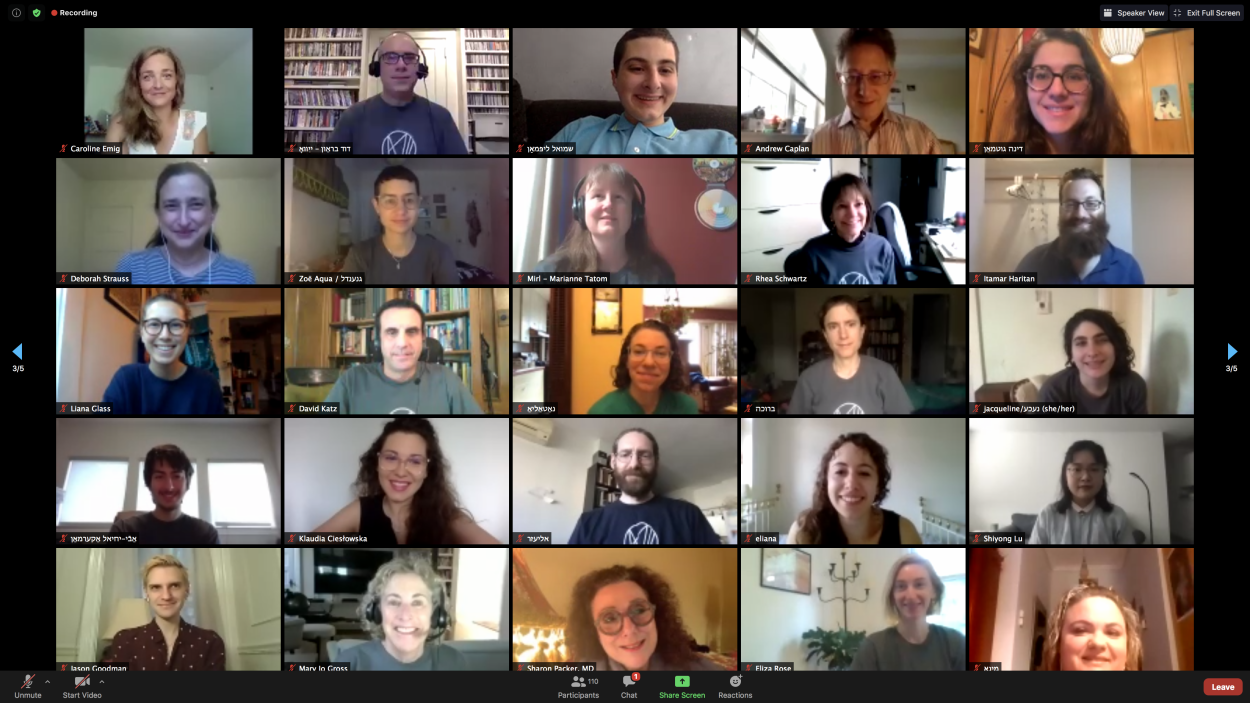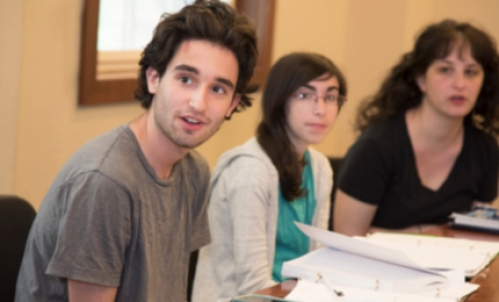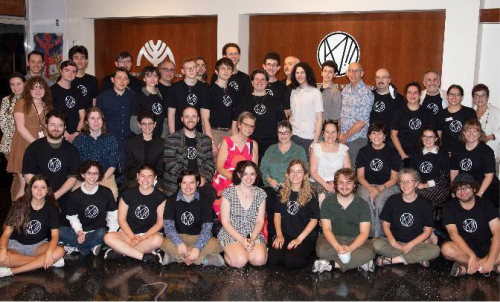Amidst a Pandemic, a Revolution in Yiddish Learning
YIVO meets global Yiddish learning demand

(August 7, 2020) – Today, 120 students graduated from The Uriel Weinreich Summer Program in Yiddish Language, Literature, and Culture, the world’s longest-running Yiddish summer program. In response to the global pandemic, the program went digital this summer for the first time in its 53-year history and boasted its largest ever enrollment numbers. As the scope and urgency of the pandemic grew, it became clear that in person programming could not safely take place this summer. This left YIVO faced with a problem: what to do about the summer program, which was been held every summer in New York since 1968.
Established in 1968 following YIVO’s transition to New York City after the Holocaust, the program, which has always taken place in person, has become a symbol of Yiddish cultural resilience and continuity. Amidst the current crises YIVO’s pivot to online learning re-imagined teaching methods and brought together 120 students (from 16 to 84 years old) and nearly two dozen instructors from 14 countries; a 60% increase from last year.
YIVO has seen unprecedented growth in its digital offerings in 2020 including over 14,000 registrants for its Shine online series of take-at-your-own-pace online classes. “When we decided to make the Summer Program digital this summer, we had no idea just how many students would apply,” explains Ben Kaplan, YIVO’s Director of Education. “The growth in applications was staggering,” he explained, “there is a real yearning to learn Yiddish, and I am happy we were able to serve so many students this year, especially at this difficult time.”
While many other summer programs were canceled or truncated, YIVO chose to run its program in full. “Language learning is by definition a study in communication,” explained Dovid Braun, the Summer Program’s Academic Director. “Language learning online has proven a great antidote to the isolation felt so commonly under pandemic living conditions. The absence of geographical boundaries is conducive to interpersonal connections which would otherwise not be made; it’s especially familiar and useful for the study of Yiddish, which often has learners spread out across the globe.” This summer’s cohort includes students from Belarus, China, Canada, Colombia, Germany, Greece, Israel, Italy, Japan, Poland, Russia, Ukraine, the United Kingdom, and the United States.
YIVO’s staff and faculty have re-imagined how the program works to meet the needs of virtual classrooms and to ensure a rich experience for students. Lesson times have been adapted to accommodate students across five different time zones. Tools such as Canvas, a learning management system, and Zoom create a dynamic, interactive, socially connected classroom. Teachers hold virtual office hours and answer student questions before and after classes.
"Despite the disappointment of not being able to share a space with my teachers and classmates, I'm happy (and surprised) to say that we still managed to form a community," explains Uri Schreter, a PhD student in musicology at Harvard University. "And we were encouraged to do so: from close encounters in the breakout rooms, through themed conversation groups, to the massive preparations for our graduation ceremony."
The program’s offerings this year include workshops from singing and acting in Yiddish to making pickles and knishes. The program also included a nine-lecture series called “Yiddish Civilization” covering broad topics from Jewish food and children’s literature to journalism and philosophy. One popular new course was Yiddish Yoga, which provided students with a way to learn Yiddish while getting in some physical activity and focusing on mental health.
To help students connect outside the classroom and practice their conversational Yiddish, YIVO also started groups called krayzlekh (“clubs” or “associations” in Yiddish). These are Zoom meetings around personal and professional interests such as music & musicians, Yiddish & comparative literature, linguistics, Jewish history, performance studies & Yiddish theater, archival studies and librarianship, and more.
The first and longest running program of its kind, YIVO’s summer program has trained generations of scholars, teachers, and students to embrace the richness, complexity, and beauty of the Yiddish language and Yiddish culture. Alumni from the Summer Program have gone on to careers as leading academics and scholars, world-renowned musicians and artists, archivists, librarians, teachers, and individuals from all professions and walks of life who draw inspiration from Yiddish culture.
For any media inquiries please contact:
Ben Kaplan
Director of Education
bkaplan@yivo.cjh.org
YIVO
The YIVO Institute for Jewish Research is dedicated to the preservation and study of the history and culture of Eastern European Jewry worldwide. For a century, YIVO has pioneered new forms of Jewish scholarship, research, education, and cultural expression. Our public programs and exhibitions, as well as online and on-site courses, extend our global outreach and enable us to share our vast resources. The YIVO Archives contains more than 24 million original items, and YIVO’s Library has over 400,000 volumes—the single largest resource for such study in the world. yivo.org / yivo.org/the-whole-story

